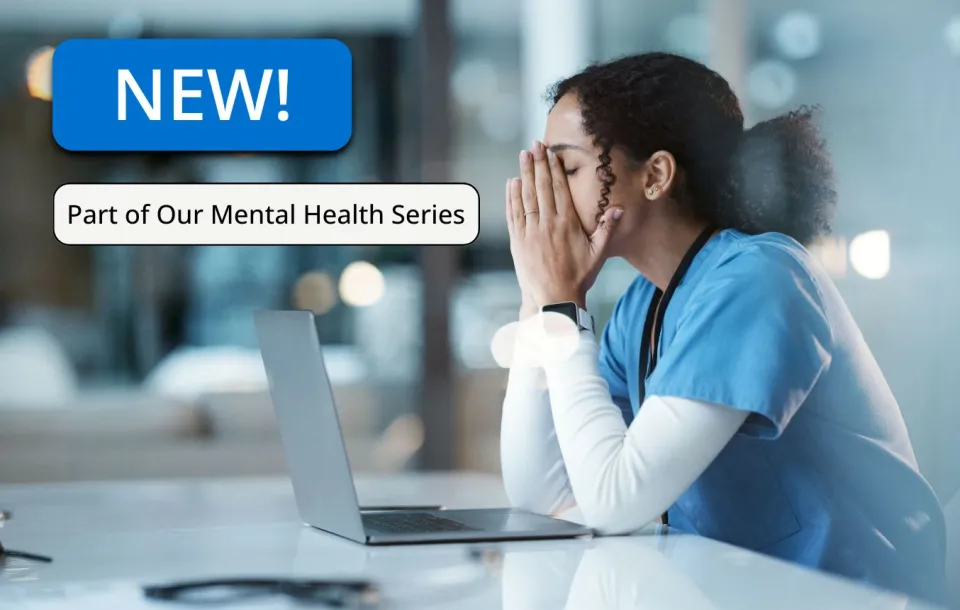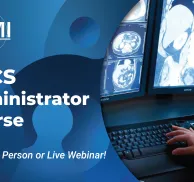
More than Stress: Recognizing and Supporting Anxiety
About this Program
This webinar explores the key aspects of anxiety, including what it is, how it feels, and how it differs from stress. Participants will learn about the common causes of anxiety—such as trauma, PTSD, genetics, and brain chemistry—and examine the roles of the hypothalamus and adrenal glands in the body’s response.
The session also addresses specific types of anxiety, including situational anxiety, phobias, and generalized anxiety disorder. Differences between acute and chronic anxiety are explained, along with what happens in the body and mind when anxiety is left untreated.
Treatment options will be reviewed, ranging from medication and psychotherapy to alternative practices like meditation, acupuncture, and CBD. Attendees will also discuss the effects of stigma, the importance of trauma-informed care, and practical ways to help reduce anxiety in patients during treatment.
Educational Objectives
At the conclusion of this webinar, attendees will be able to:
- Differentiate between stress and anxiety
- Differentiate between acute and chronic anxiety
- Discuss the various types of treatments for anxiety and their efficacy
- Discuss the ramifications of untreated anxiety
- Discuss the ramifications of labeling
- Discuss the role of trauma-informed care
- Articulate an understanding of tactics useful for reducing anxiety for patients during treatment
Schedule
What this course will cover
- What is anxiety?
- What does anxiety feel like?
- What’s the difference between anxiety and stress?
- Why do people have anxiety?
- Childhood trauma
- PTSD
- Genetics
- Brain chemical imbalances
- The hypothalamus’s role
- The adrenal glands’ role
- Do healthcare workers experience more anxiety than others?
- What's the difference between acute and chronic anxiety?
- Situational Anxiety
- Phobias
- Chronic Anxiety—Generalized Anxiety Disorder
- What happens when a person experiences acute anxiety?
- What happens when a person experiences chronic anxiety?
- Why is chronic anxiety considered harmful?
- What is a panic attack?
- What are the efficacies of treatments for anxiety?
- Serotonin Reuptake Inhibitors
- Dopamine Reuptake Inhibitors
- Psychedelics
- CBD
- Alcohol
- Eastern Medicinal Practices
- Acupuncture
- Supplements
- Meditation
- Yoga
- Psychotherapy
- Cognitive behavioral therapy
- Exposure therapy
- Insight-oriented therapy
- What happens when anxiety is left untreated?
- Secondary Mental Health Diagnoses
- Depression
- ADHD
- Eating disorders
- OCD
- Substance use disorders
- Suicide
- Health issues
- Cardiac
- Dementia
- Decreased Longevity
- Vision
- High blood pressure
- Stroke
- Obesity/eating disorders
- Gastrointestinal
- Neurological
- Relationship and workplace issues
- Attachment styles
- Personalities
- Secondary Mental Health Diagnoses
- Patient Care and Anxiety
- Labeling
- Trauma-informed care
- Tactics to reduce anxiety in patients
- Mental Health Stigmas
Audience
Who should attend?
This webinar is designed for healthcare workers and medical imaging professionals at any level.
Program Faculty
Meet your presenter(s)

Brenda Rinehart
PhD
Dr. Brenda Rinehart earned her doctoral degree in Industrial and Organizational (workplace) psychology from Capella University. She holds an MBA from Southern Nazarene University, and undergraduate degrees in Human Resource Management, and Radiology. Dr. Rinehart is a consultant, professor, curriculum designer, national speaker, and author of many peer-reviewed journal articles. She spent sixteen years of her career in healthcare administration and sixteen years in front-line clinical care. She earned her Fellows through AHRA in 2012. She earned certifications in radiology administration, CT, mammography, radiography, LEAN, and specific psychological assessments. Dr. Rinehart lives with her husband in the mid-west and is a proud mom to nine children and many grandchildren.
Credits
Accredited training programs

ASRT Pending
Category A/A+ CE credit is pending approval by the ASRT. An application for 1.5 hours of credit for radiologic technologists recognized by the ARRT® and various licensure states has been filed.
Tuition
Convenient payment options available
| Audience | Price | Early Price | Member Price | Member Early Price |
|---|---|---|---|---|
| Technologist | $37.50 | $35.25 | $33.75 | $31.25 |
Early Pricing Guidelines
Qualifying 'Early' registrations must be made at least 4 days in advance for the program.
Cancellation Policy
Webinars less than 8 hours of credit
Refunds, minus a $15 processing fee, will be granted for cancellations received at least 3 days prior to the program. Cancellations received within 3 days of the webinar will receive a credit toward a future MTMI program, minus the $15 processing fee. No refunds will be made after the webinar starts. MTMI reserves the right to cancel any scheduled program because of low advance registration or other reasons. MTMI’s liability is limited to a refund of any program tuition paid. WEBINAR ATTENDEES that cannot log in due to unsolvable technical issues beyond their control will be eligible for a full refund.









 at checkout.
at checkout.